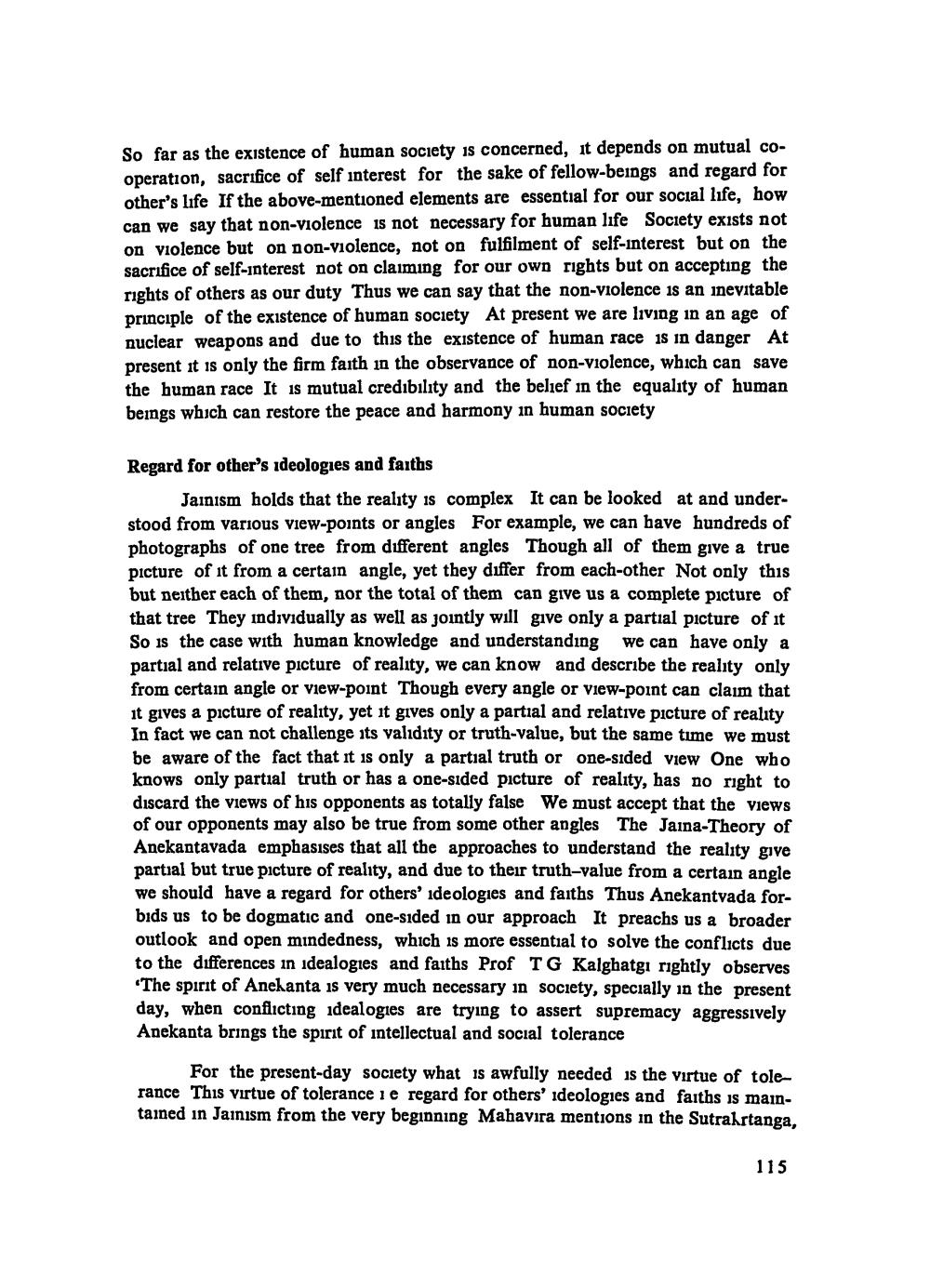________________
So far as the existence of human society is concerned, it depends on mutual cooperation, sacrifice of self interest for the sake of fellow-beings and regard for other's life If the above-mentioned elements are essential for our social life, how can we say that non-violence is not necessary for human life Society exists not on violence but on non-violence, not on fulfilment of self-interest but on the sacrifice of self-interest not on claiming for our own rights but on accepting the rights of others as our duty Thus we can say that the non-violence is an inevitable principle of the existence of human society At present we are living in an age of nuclear weapons and due to this the existence of human race is in danger At present it is only the firm faith in the observance of non-violence, which can save the human race It is mutual credibility and the belief in the equality of human beings which can restore the peace and harmony in human society
Regard for other's ideologies and faiths
Jainism holds that the reality is complex It can be looked at and understood from various view-points or angles For example, we can have hundreds of photographs of one tree from different angles Though all of them give a true picture of it from a certain angle, yet they differ from each-other Not only this but neither each of them, nor the total of them can give us a complete picture of that tree They individually as well as jointly will give only a partial picture of it So is the case with human knowledge and understanding we can have only a partial and relative picture of reality, we can know and describe the reality only from certain angle or view-point Though every angle or view-point can claim that it gives a picture of reality, yet it gives only a partial and relative picture of reality In fact we can not challenge its validity or truth-value, but the same time we must be aware of the fact that it is only a partial truth or one-sided view One who knows only partial truth or has a one-sided picture of reality, has no right to discard the views of his opponents as totally false We must accept that the views of our opponents may also be true from some other angles The Jaina-Theory of Anekantavada emphasises that all the approaches to understand the reality give partial but true picture of reality, and due to their truth-value from a certain angle we should have a regard for others' ideologies and faiths Thus Anekantvada forbids us to be dogmatic and one-sided in our approach It preachs us a broader outlook and open mindedness, which is more essential to solve the conflicts due to the differences in idealogies and faiths Prof TG Kalghatgi rightly observes
The spirit of Anekanta is very much necessary in society, specially in the present day, when conflicting idealogies are trying to assert supremacy aggressively Anekanta brings the spirit of intellectual and social tolerance
For the present-day society what is awfully needed is the virtue of tolerance This virtue of tolerance 1 e regard for others' ideologies and faiths is maintained in Jainism from the very beginning Mahavira mentions in the Sutrakrtanga,
115




